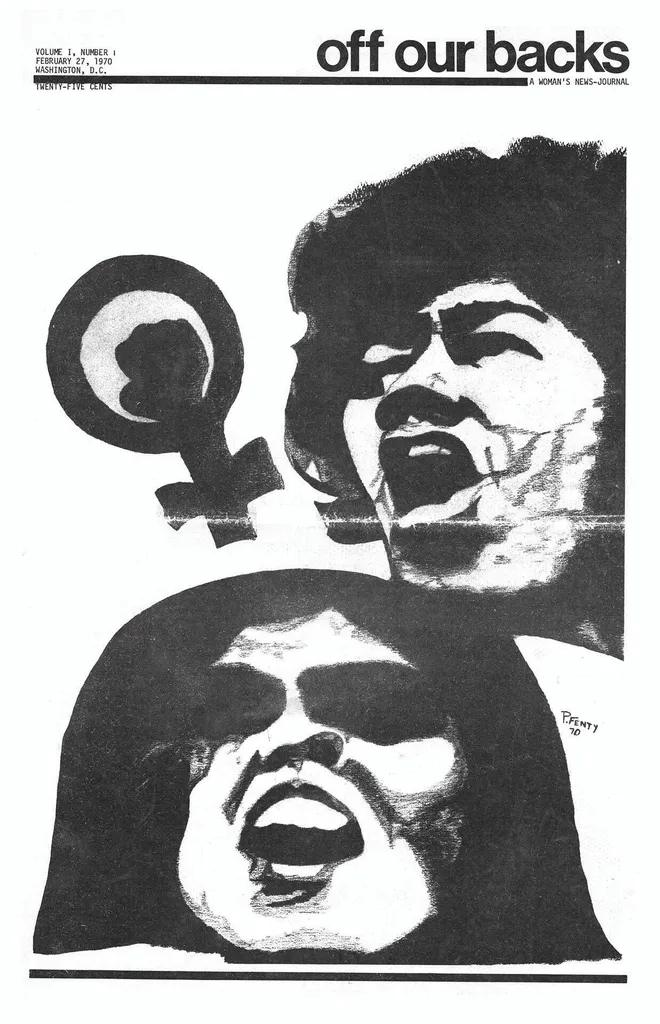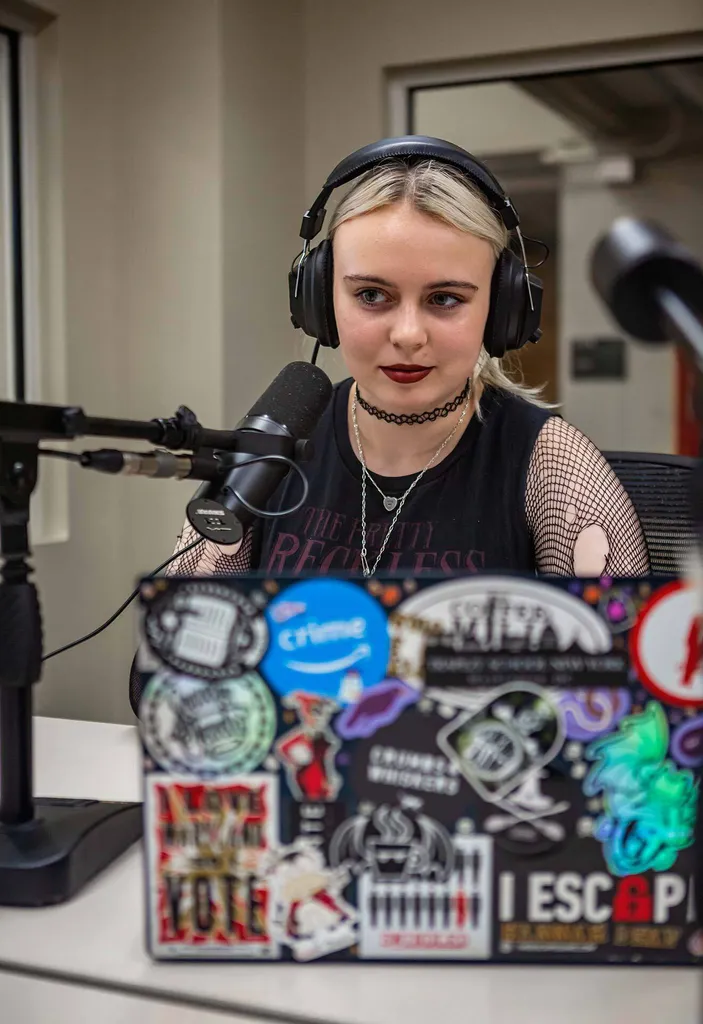- July 19, 2023
- By Maggie Haslam
In the early 1970s, the FBI began surveilling a potential new threat to national security: an extremist group labeled “armed and dangerous” by agency officials in internal memos. The handful of women targeted by the agency didn’t carry guns or call in bomb threats, but to the feds, they wielded weapons just as lethal: feminist rhetoric, typewriters and a printing press.

The account of government surveillance, told through archival materials held at University of Maryland Libraries, offers a glimpse into the trailblazing and often defiant history of Off Our Backs, the nation’s longest-running feminist news journal, now the subject of a new student podcast series debuting today.
Researched, written and produced by seven undergraduate women 53 years after the first issue was circulated among underground activism groups, “With Love & Struggle” is a window into the issues facing women at the height of the feminist movement—and how many of those issues endure today.
“[The archives collection] is just a treasure trove of things no one has looked at, the history of this publication is all there,” said Assistant Clinical Professor Jaclyn Bruner, who led the project as part of an eight-week archival research internship called FIRE Visualizing Social Justice, which combines data visualization, communication and archival research. “Through digital storytelling, the students can imagine it in a compelling way, and at a time when the issues around women’s rights are more relevant than ever. Research doesn’t always see this type of product.”
FIRE Visualizing Social Justice is one of 14 research internships offered to 135 undergraduate students this summer through the university’s First-Year Innovation & Research Experience (FIRE) program, which offers mentored research experiences ranging from machine learning and addiction science to bacterial pathogens and sustainability, with dedicated faculty and spaces across campus.
“Finding and securing faculty-mentored research opportunities can be challenging in a university environment,” said FIRE founder and Director Patrick/Patricia Killion, who launched the FIRE-based summer internship program in 2022. “Part of the design of FIRE and our summer research internships program is to welcome a large number of students new to university-level research, provide them with training and a meaningful and challenging project, and then support them with faculty mentorship and a vibrant peer community.”
The nonprofit Off Our Backs launched in January 1970, its name simultaneously a warning to men and a call for women to join the feminist movement. Predating the quintessential feminist periodical Ms. magazine by a full year, Off Our Backs covered edgier topics other news organizations shied away from: abortion rights, sex, domestic labor and lesbian culture. After the magazine folded in 2008, Hornbake Library acquired the collection through the help of a university affiliate.
The collection of news clippings, photographs, letters, memos and cartoons (including early illustrations by Alison Bechdel, famed creator of the graphic novel/musical “Fun Home”) measures approximately 46 linear feet of shelf space and is largely “unprocessed,” meaning it has not been deeply explored or interpreted by the collections team. Bruner and her students carefully studied the contents of a small portion of the collection—roughly seven boxes—setting aside pieces that caught their attention, building narratives with additional research and distilling it into digestible, compelling stories.

The team explores several themes throughout the six-episode podcast such as reproductive rights, prison reform, intersectionality and domestic work, using the pages of Off Our Backs as a connecting thread. The paper, they discovered, was also a vehicle for organizations within the feminist movement to communicate with each other, and to galvanize women through petitions, essays, poetry and political cartoons.
While the feminist movement resulted in progress—including more equitable workplaces, domestic violence awareness and Title IX—the archival process exposed the students to what Bruner refers to as a historical “hamster wheel”: that progress is not linear, but one where history repeats. The CIA surveillance documented in the archives raises questions about the government’s ability to shape public memory, a phenomena Viviane Stackhouse ‘25 pointed out is still happening today with groups like Black Lives Matter. Meanwhile, the magazine’s coverage of major victories on reproductive rights was dispiriting to students in light of last year’s sharp reversal of Roe vs. Wade.
“It’s not surprising, but it’s disappointing, particularly in this larger context,” said Maliyah Daniels ‘25. “Why is it that we are still having conversations in terms of reproductive rights? How can women have a voice and be heard?”
The answer may lie partly in more effectively leveraging modern forms of public discourse, such as social media platforms and other digital media, said Bruner. While the internship provided an intensive education in archival research, it also guided students in distilling subject matter into a powerful message that can spur continued conversations.
Social media, said Hannah Bray ’24, a government and politics major, is not much different than the pamphlets and postcards tucked into the pages of Off Our Backs in the 1970s.
“A lot of the issues written about in the magazine were literally identical to TikToks that I saw just yesterday,” she said.
“With Love & Struggle,” the six-part student podcast on the feminist news journal Off Our Backs, premieres today, with new episodes appearing weekly. Listen to the first episode. The podcast is coming soon to Apple, Spotify and other platforms.
